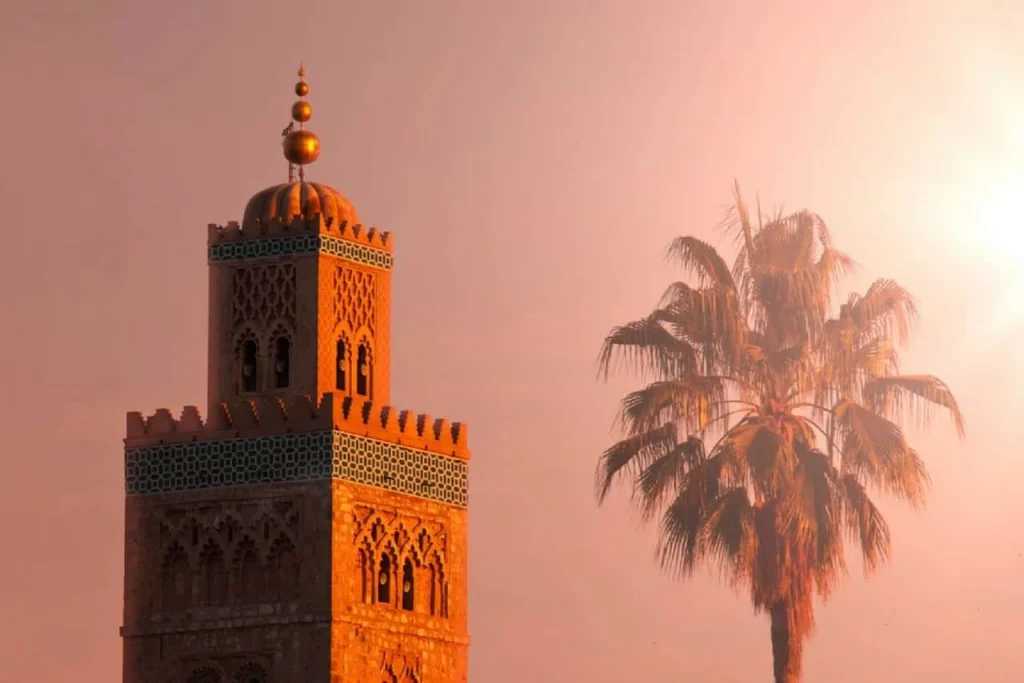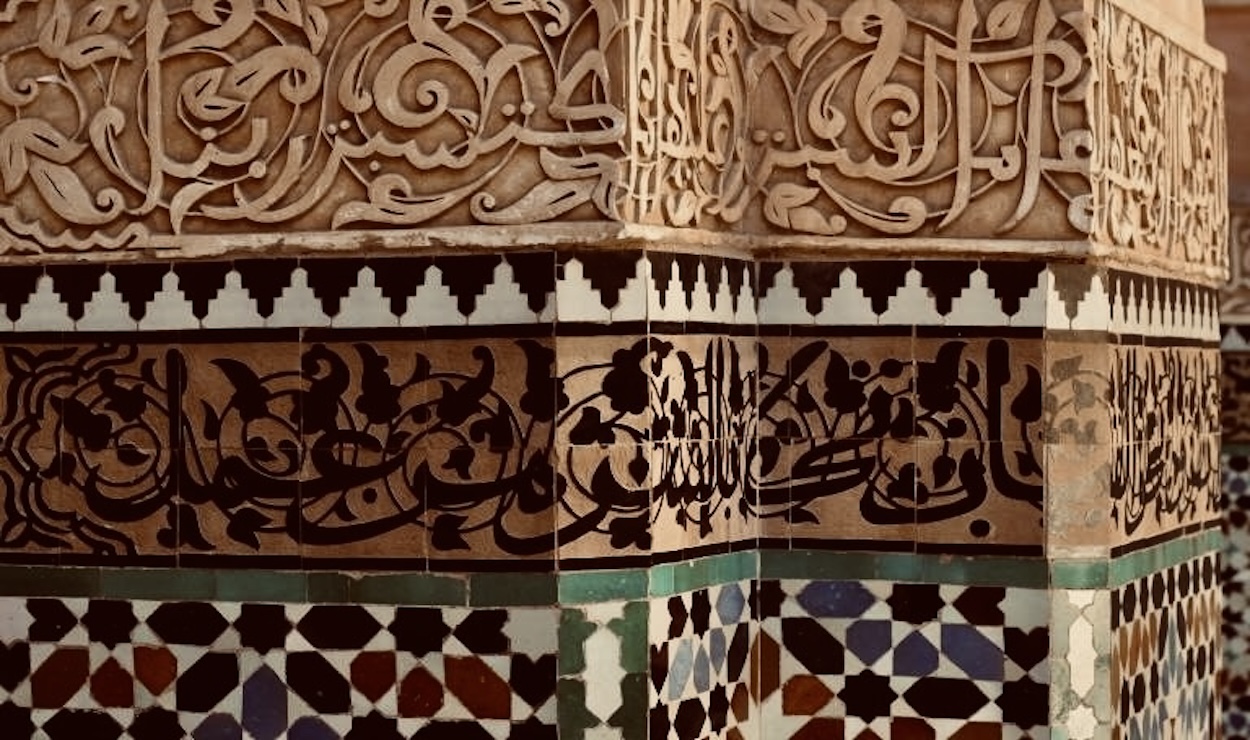During your travels to Morocco, particularly the lively city of Marrakesh, you may have heard a sound that seemed dearly ancient yet alive — the persistent drumming combined with deep singing voices and the sharp rhythm of metallic clapping. This sound is none other than Gnawa music. But it is more than simply music; it is a spiritual and cultural tradition that narrates the journey through history, suffering, healing, and celebration.
Let’s learn about the origin of Gnawa traditional music. See what is so special about the musical instruments of Gnawa. Also, how the magnificent Gnawa music festival illuminates the streets of Marrakech.
This is your chance to learn of one of the most potent traditions of Morocco, whether one is a lover of music, an avid traveler, or just curious.
Also read: Marrakech International Film Festival
What is Gnawa Music?
Gnawa or Moroccan trance music: is a kind of music very traditional in the Moroccan context, combining African spirituals, Islamic prayers, and the Moroccan folk rhythms of the ndar and develop and where the drums appear and stand. In addition to these instruments, it has the ecstatic art of dancing and theatrical performance.
But culturally and spiritually, the origins of this music constitute a different story altogether. The people play the music and dance to support people in remembering their lineage. It has their real story, struggles of their West African descendants, gifts of a courageous spirit, even joy.
They sing histories of slavery and freedom. The Gnawa music of Marrakesh relives the struggle for admiration of and for God, and the value of strength and independence. The Marrakesh style of Gwana sings, up until today, poems that join together all these heavy feelings.
The Origins of Gnawa Music
Gnawa is known to be the descendants of enslaved Africans, which form the roots of Gnawa music. It is believed that they were brought into Morocco via the trans-Saharan routes. These men and women were taken away from places such as Mali, Sudan, and Ghana. They bring their music and spirituality as well as rituals with them. Their lives being very much a struggle made it sure that they had a connection with their roots.
They gradually started mixing their African traditions with the local Moroccan and Islamic spirit. The fusion gave birth to a new practice of spirituality that incorporated music, dance, prayer, and healing. Hence grew the very concept of Gnawa Music Morocco.
Originally, these were performed within closed circles during religious ceremonies called lila — all night long events to heal the body and soul. Traces of these same traditions still exist in the current performances of Gnawa yet the music far exceeds its original community-based context.
Gnawa Music Instruments
The sound of this music is very unique. It is strong, rhythmic, and pregnant with emotion. This sound is brought to life by a special share of traditional Gnawa music instrumentss. Let’s explore the key instruments used in Gnawa performances.
1. Guembri (or Sintir)
This is the heart of Moroccan trance music. It’s a three-string bass instrument made of wood, camel skin, and goat gut. It looks like a mix between a guitar and drum. The guembri makes deep, earthy sounds that give the music its soul. It’s usually played by the lead musician, called Maâlem.
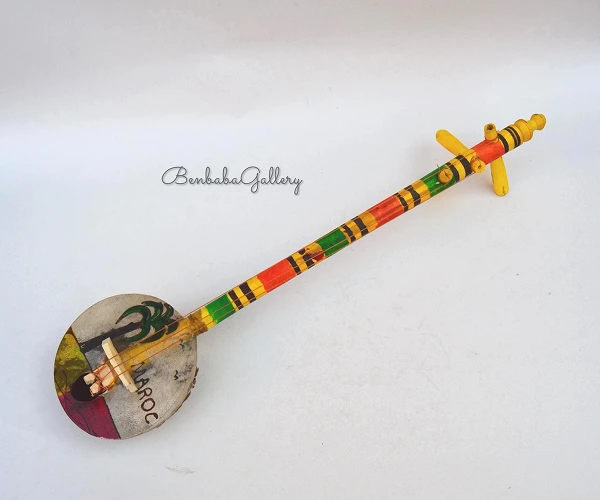
2. Qraqeb (or Krakebs)
They are large beaten metal castanets that click what seems to be the loudness of chains used during slavery as reminders of the past. They form the backbone of the clapping rhythm of North African spiritual jazz/blues.
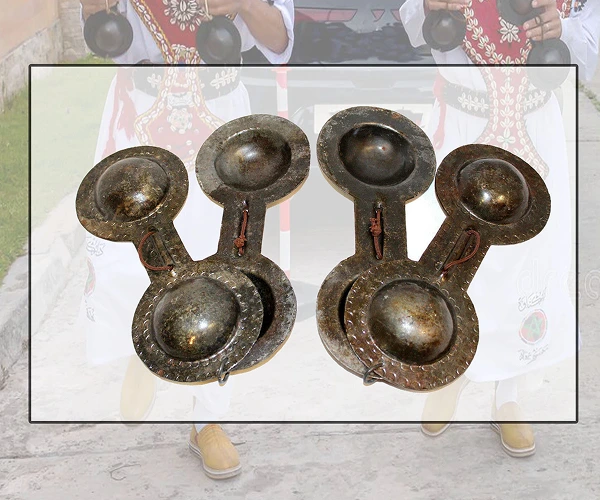
3. Tbel (or Drum)
A big double-headed drum, struck with sticks or hands, gives extra energy to the performance and rhythm to the performances as a whole, especially in big ceremonies and festivals.
These instruments come together to create an awesome and mind-suspending, trance-inducing sound that awakens and activates the body as well as the spirit. They are not merely musical instruments: They mean history, identity, and strength.
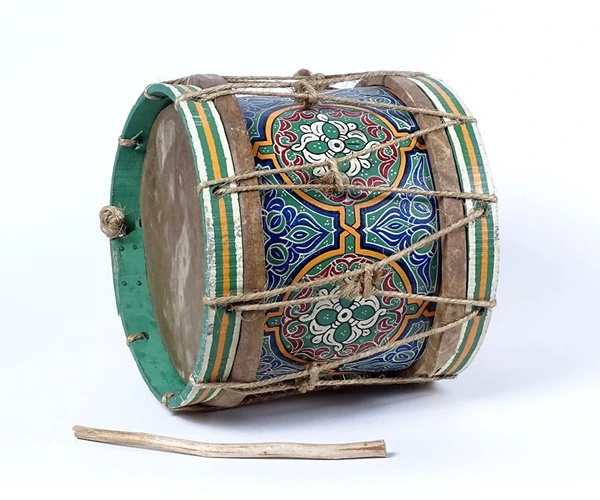
Gnawa Music in Marrakesh
Marrakesh is one of the best towns to hear and feel the Sub-Saharan African rooted rhythms/chant’s power of Marrakesh, in the streets of the medina, where street plays and small groups perform just outside shops and cafés. But the locals know that the experience lies in the events and nights when the music fills programs: you can sit and enjoy a full performance.
At such events, we see performers in colorful robes dancing with high energy and singing songs. Many of the songs include prayers in praise and stories of freedom, love, and healing. Understand the language or not, one will always feel the emotion behind it.
The Marrakshis are very proud of their heritage of Gnawa. The interest of tourists and musicians worldwide has helped develop this heritage while still respecting its historical perspectives.
The Gnawa Music Festival
Attending the Gnawa ritual music festival is one of the most exciting ways to fully experience this tradition. The Gnawa Festival in Marrakech is an annual cultural highlight in Morocco’s calendar.
This festival encompasses practically all the city stages with performances from artists all around Morocco, Africa, and even Europe and the United States. Expect to hear innovative Gnawa plays with fusion bands and international artists incorporating jazz, blues, and rock and Rhythms inspired by the Gnawa sound.
The festival usually lasts several days and includes:
- Free concerts in public squares
- Cultural talks and workshops
- Art and craft markets
- Healing ceremonies and dance shows
This event does not just celebrate music but history, spirit and brings together communities across the main message — that of peace, unity and respect for tradition.
Also read: Berber music in Morocco
Why You Should Listen to Gnawa Music?
So, if you plan to visit Morocco or just explore this beautiful country from home, spare a few minutes listening to Morocco’s spiritual soundscape. This soulful Gnawa melody opens the ears and heart.
And it is more than worth discovering because:
- This narrates an extremely profound story of survival and healing
- Combines the culture, faith and history in one sound
- It is simultaneously soothing and energizing
- It links one closely to an area of Morocco rarely traveled by tourists
With more and more global artists collaborating with Gnawa musicians, this tradition is indeed reaching new ears around the world. But at heart, it remains a sacred and personal form of expression for the Moroccan people.
Final Thoughts
Gnawa is not merely evidence of Moroccan culture, but an ongoing memory of African identity, a vehicle for spiritual healing, and an affirmation of human capacity. Its notes will continue to resonate in hearts everywhere, from the hidden places in Marrakesh to the major platform of the Gnawa music festival.
If you get the opportunity to see the experience live in Marrakesh, do it. Listen to the guembri while clapping along with the qraqeb. Let the rhythm take you on a journey — a testament to a people transforming pain into strength.
Explore. Listen. Feel. That’s the essence of the experience of Gnawa music in Morocco.
Frequently Asked Questions
Is Gnawa music only for religious ceremonies?
The healing rituals that were once called lila were at the core of the ceremonies. Today, though sacred to many, the ceremony has become somewhat of a public concert or festival, and many in turn share their love of Gnawa music and culture with fellow people and cultures for exceptional appeal culturally and musically.
What is the main purpose of a Gnawa lila ceremony?
A lila is an all-night spiritual ceremony attached to handling and trance. The music, the dances, and lyrics are aimed at connecting the people present with their ancestral spirits for purification and wellness.
Can I dance to Gnawa music?
Absolutely! Gnawa music tends to be very rhythmic and conducive to movement. Although dancing is a long-standing tradition of the ceremony, when people are given the chance to simply feel the beat in their body, everybody should be encouraged to groove and move to some rockin ‘rhythms.
Where can I experience authentic Gnawa music in Morocco?
Aside from the yearly Marrakech festival, one can observe streetmusic performed in city squares such as Djemaa el-Fna or concerts organized for cultural purposes and traditional lila activities in Essaouira or Marrakech.
How has Gnawa music influenced other music genres?
Gnawa is throughout the earth an unsurpassed rhythm and spiritual highness that captures numerous artists! It is quite normal for Gnawa musicians to collaborate with jazz, blues, rock, and electronic artists, creating colorful fusions of both ancient sounds and contemporary style.


